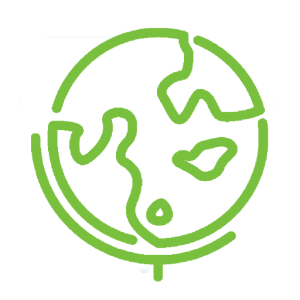CONTEXT
Autism Spectrum Disorder (ASD – referred to as ‘autism’ in this proposal) is a lifelong condition affecting c.1 per 100, impacting all aspects of the individual’s experience, including how they learn. Such children & young people share common education needs with all others & are entitled to appropriate education. However, they have specific & special needs regarding the characteristic difficulties in autism in communication, social understanding, inflexibility & sensory processing. Education is the key intervention for this group, & meaningful access to effective education is crucial.
Due to the diverse autism spectrum, no single educational intervention is effective for all; educators need a range of skills & strategies. Providing such education is challenging across Europe, particularly within Central/ Eastern Europe and the Balkans.
Project partners, in previous projects, have identified good practice but also significant training/development needs. This project focuses on developing training to support effective teaching to ensure the inclusion of learners with autism within this region.
OBJECTIVES
To empower specialist educators in Central/Eastern European/Balkan settings to support effective inclusion of children with autism in education, providing them with appropriate skills, knowledge, strategies & locally-appropriate training.
This project supports the implementation of national/international & EU educational policy:
- Salamanca Statement and Framework for Action on Special Needs Education (Unesco 1994)
- Education System Act 1991 (Poland)
- National Strategy for Education, Science and Technology 2014 (Croatia)
- Laws on Primary and Secondary Education 1995 (the Republic of North Macedonia)
- Empowering Teachers to Promote Inclusive Education (European Agency for Special Needs and Inclusive Education 2016)
- Inclusive Education for Learners with Disabilities (European Parliament 2017)
It unites a partnership of schools, academics and governmental & non-governmental organisations to:
- Map country-specific & EU-wide good practice & areas needing development regarding educational inclusion of children with autism within diverse European states (focus on Croatia, Poland and the Republic of North Macedonia)
- Develop a locally appropriate model training programme & materials for specialist educators supporting the educational inclusion of children with autism
- Use these materials to pilot the training with specialist educators from mainstream/special schools across Croatia, Poland and Republic of North Macedonia
- Evaluate the appropriateness of the materials & impact of the training on teachers’ skills and practice
- Share the programme & materials with stakeholders & make recommendations to policy-makers in these regions/across Europe.
The partnership will be supported by an advisory group comprising individuals on the autism spectrum, parents & professionals, & has been designed to ensure that key stakeholders are actively involved in designing the project at all stages to ensure relevance & appropriateness.
OUTPUTS
Mapping Report (unfunded) (O1)
This intellectual output will map both country-specific and EU-wide strengths, challenges, barriers and opportunities regarding educator training regarding autism and good practice regarding the provision of such training. This activity is coordinated by the University of Northampton.
This activity is innovative in a number of ways. The needs analysis leading to the development of the proposal has identified that no such mapping activity has been undertaken with regard to the needs of specialist teachers and educators in Croatia, the Republic of North Macedonia and Poland regarding training to support the educational inclusion of children with autism. It is therefore a necessary first step towards the successful implementation of the project. It will investigate not only policy and research but also the real-world experience of practicing specialist teachers: gathering the perspectives of the target audience for the training is essential if it is to be meaningful and effective.
Autism Teacher Training Curriculum and Programme (O2)
This is the overall teacher training curriculum and training programme for specialist teachers working with children with autism. It will contain a universally appropriate and relevant core curriculum of information and strategies identified as essential for all specialist teachers working with children with autism. It will be differentiated to produce a training programme appropriate to specialist teachers and educators within different educational and national contexts.
The programme will be developed so that it will comprise approximately 12 hours of training. It will be used to inform the training materials (O3) and will be tested in the field in Croatia, the Republic of North Macedonia and Poland. It’s appropriateness and impact on practice will be measured through the Programme Evaluation (O4) and it will inform both journal articles (O5) and the Policy Guidelines (O6).
This is an innovative output in that no such model curriculum has been developed with a focus on supporting the development of specialist teachers’ knowledge and skills to further the education and inclusion of children with autism within this region of Europe. The curriculum will have transferability outside the three countries in which it is being tested and can inform practice elsewhere within the EU and partner countries.
This curriculum will be presented to and shared with stakeholders and external audiences via the four multiplier events in Zagreb, Skopje, Cracow and Brussels, at the Autism Europe International Congress in Nice, and via the project website.
This activity is led by Pedagogical University of Cracow, supported by all partners.
Autism Teacher Training Materials (O3)
These are the training materials that will be used to deliver training to specialist educators working within both mainstream and special school settings in Croatia, the Republic of North Macedonia and Poland. They will comprise approx. 12 hours of training materials, including e.g. PowerPoint presentations, case studies, trainer notes and materials for participants. All of these will be available in English, Croatian, Macedonian, Polish and French.
These materials will be developed using the professional expertise of the partnership, informed by the mapping exercise (O1) to effectively deliver the autism teacher training curriculum (O2). They will be tested in the field in Croatia, Poland and the Republic of North Macedonia, and refined as necessary in the light of feedback. This will be an innovative set of training materials, which will be available to be used not only within these countries, but will have high transferability and relevance to other diverse EU settings.
This activity is led by Blue Firefly, supported by all partners.
Programme Evaluation (unfunded) (O4)
The evaluation will utilise a mixed-methods programmed evaluation methodology to robustly and systematically evaluate all aspects of the process and content of the autism training programme, as well as the impact and quality of the project as a whole. This evaluation will provide knew knowledge regarding the effectiveness and impact of training, addressing the gaps in knowledge identified within the needs analysis.
The evaluation will use a range of methods both quantitative (pre-training, post-training and follow-up surveys of all specialist educators attending trainings) and qualitative (follow-up interviews with a sample of specialist educators, focus groups with trainers). This will provide robust data which will be disseminated through journal articles (O5), policy guidelines (O6), and through Multiplier Events (E1-4) and other dissemination activity. The evaluation will have high relevance and transferability to diverse EU settings.
This activity is led by The Faculty of Education and Rehabilitation Sciences, University of Zagreb, supported by all partners.
Journal Articles and Scientific Papers (O5)
These are the scientific papers and journal articles that will be published in academic and professional journals to disseminate the activity of the project, maximising its profile within partner countries, the EU community and internationally. Publications will enable the project partnership to share findings from the stages of the project with the stakeholder communities to maximise impact and contribute to sustainability. These outputs will be aligned to the key phases and activities of the project, e.g. mapping, evaluation. A number of academic journals are relevant for publications from the project, both within the project countries and internationally. These include:
- European Journal of Special Needs Education (UK)
- Croatian Journal of Rehabilitation Research (Croatia)
- Annales Universitatis Paedagogicae Cracoviensis: Studia Psychologica (Poland)
- Journal of Special Education and Rehabilitation (the Republic of North Macedonia).
Policy Recommendations (O6)
Activity against O6 relates to the development of policy recommendations relating to training for specialist educators regarding autism within Central/Eastern Europe and the Balkans.
Initial development of draft policy recommendations will be undertaken by Autism Europe and the University of Northampton. This policy document and supporting materials (e.g. video) will be supported by all partners and translated into all project partner languages. This output will be launched at ME4 and supported by all partners.
Advisory Group
The partnership will be supported by an advisory group comprising individuals on the autism spectrum, parents & professionals. The group has been designed to ensure that key stakeholders are actively involved in designing the project at all stages to ensure relevance and appropriateness.





